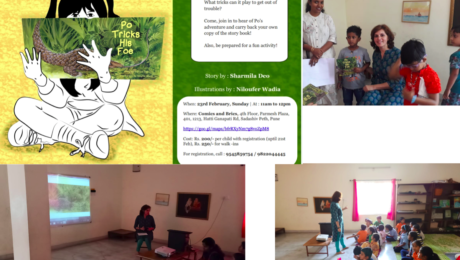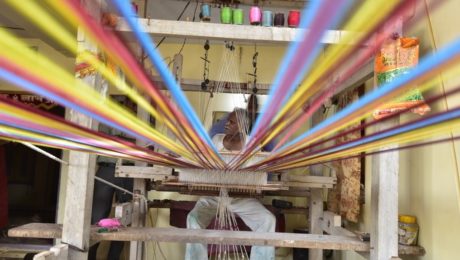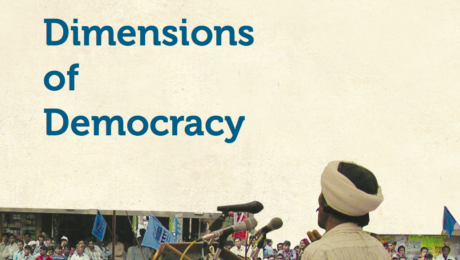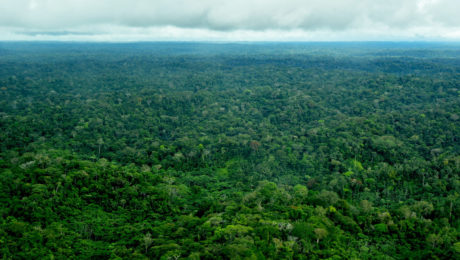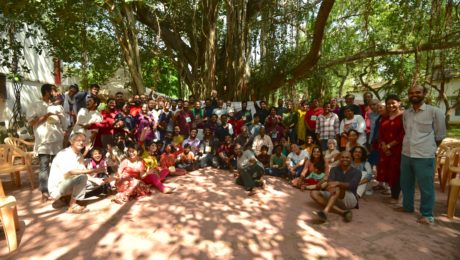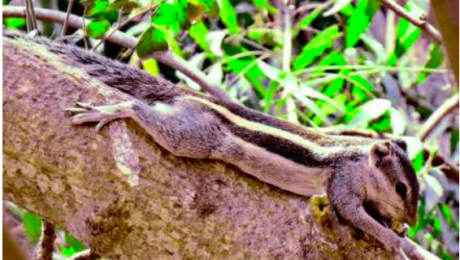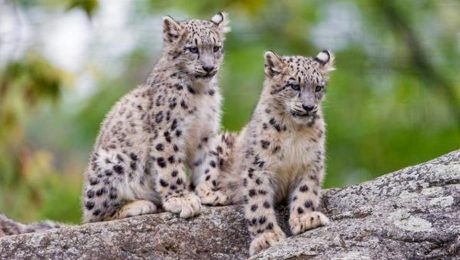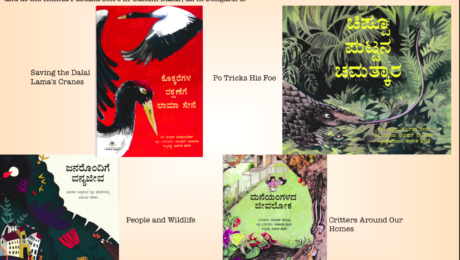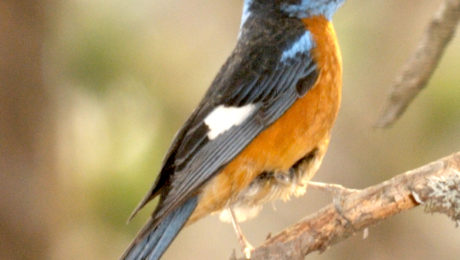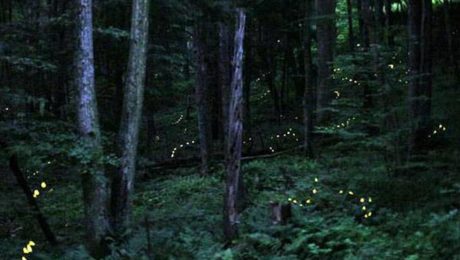Book reading of ‘Po Tricks His Foe’
Recently, Sharmila Deo, author of the childrens’ book ‘Po Tricks His Foe’ did a book reading session At Comics and Brics, Pune. Sharing some images from the event!
- Published in Latest Post
Against the Tide
Youth revive traditional crafts in Kachchh, India. To read the article, please click here.
- Published in Latest Post
New Booklet: Dimensions of Democracy
- Published in Latest Post
Life’s profusion and the struggle to save it
Article about visit to the the Amazon forest, and the Sapara indigenous tribal community.
To read the article, please click here.
- Published in Latest Post
Alternative Economies Vikalp Sangam
KV helped organise and participated in the Alternative Economies Vikalp Sangam (AEVS, 2-5 January 2020), primarily put together by a group based in Auroville, Tamil Nadu. Nearly 100 people participated in this 4 day gathering, with plenty of discussion, group exercises, a public mela, and other methods, to share economic initiatives that put people and environment at the core rather than destroying them as the currently dominant ‘developmentalist’ economy does. This gathering was part of the ongoing series of Vikalp Sangams (alternative confluences) that KV is helping to coordinate. Reports and photos from the AEVS will be posted shortly
- Published in Latest Post
Who moved my tree?
They brought the tree down. I watched in sadness as the
squirrel was left homeless. But, that moment was decisive. I decided to do something.
To read the article, please click here.
- Published in Latest Post
Thrill of the unexpected
While being taken to watch animals in the wild is exhilarating, one cannot but long for the surge of excitement that chance encounters bring. To read the article, please click here.
- Published in Latest Post
Kids’ Books now in Kannada!
Four of our books for children have been published in Kannada by Ankita Pustaka! They have been translated by Nagesh Hegde. These are available at all outlets of Sapna Book House and Navakarnataka, and at their respective online stores, and at the Ankita Pustaka store in Gandhi Bazar, all in Bengaluru.
Books translated: Saving the Dalai Lama’s Cranes; Po Tricks His Foe; People and Wildlife; Critters Around Our Homes
- Published in Latest Post
Tracking the calls
A trek to the quaint Himachali village of Barot doubled up as a bird watching exercise. To read the article, please click here.
- Published in Latest Post
Stars that twinkle
A flicker here, a flicker there. Blink and you might miss it. What’s that that glows in the dark? To read the article, please click here.
- Published in Latest Post

